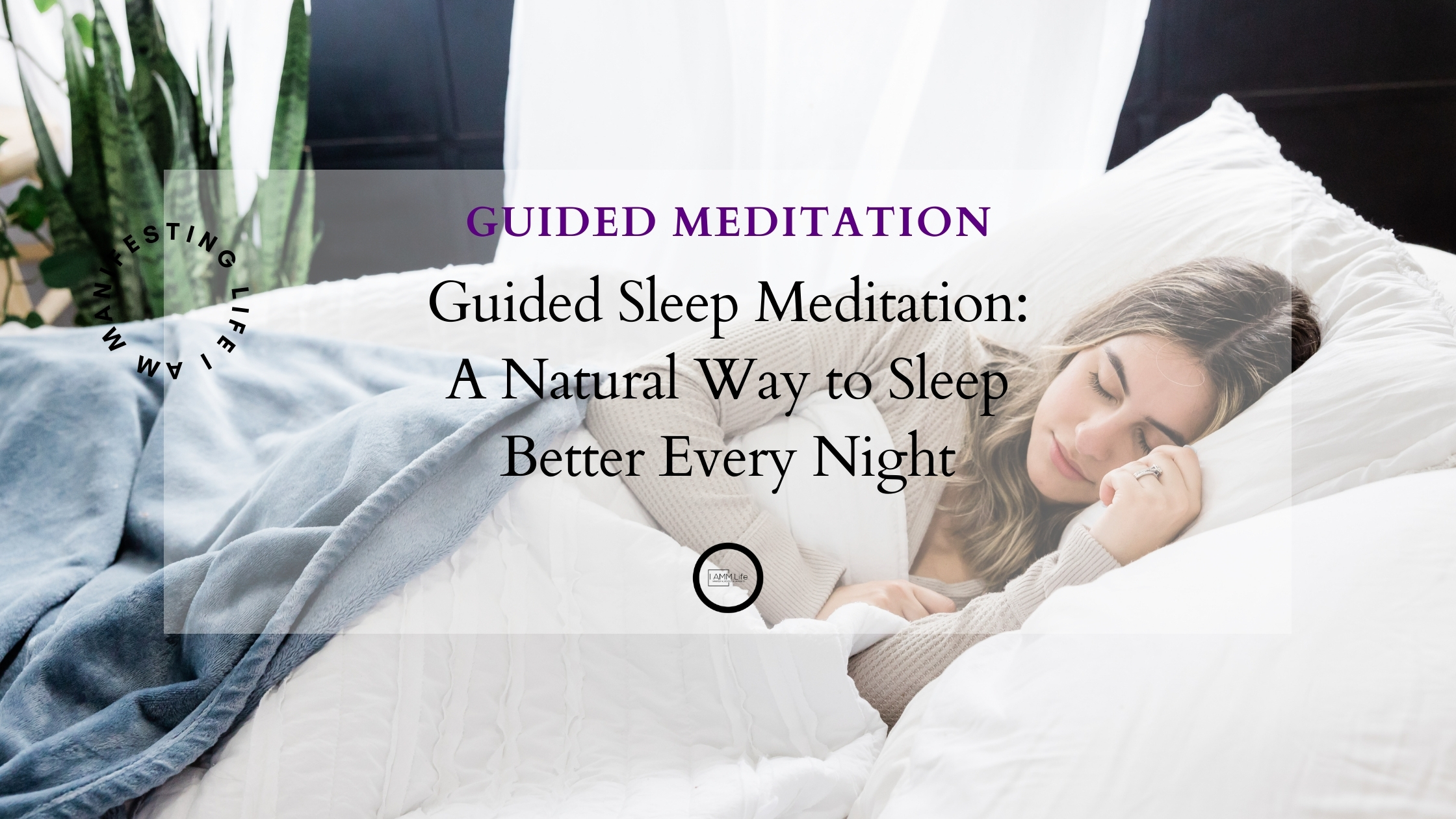If you’re struggling to fall asleep or wake up feeling groggy, incorporating a guided sleep meditation into your nightly routine can make a huge difference. Getting enough quality sleep is critical to supporting every other healthy habit.

What Is Guided Sleep Meditation?
Guided sleep meditation is a form of mindfulness that uses calming narration, visualizations, and breathing techniques to help your mind and body relax into a deep sleep. It’s often delivered through audio recordings or videos and is ideal for beginners and seasoned meditators alike.
The Top Benefits Sleep Meditation
Practicing regularly can lead to powerful mental and physical health benefits, including:
- Reduced anxiety and stress
- Faster time falling asleep
- Deeper, more restorative sleep
- Improved mood and mental clarity upon waking
A Step-by-Step Routine
Follow this simple nighttime routine to get the most from your experience.

Step 1: Prepare Your Sleep Environment
Keep your bedroom cool, dark, and clutter-free. Use calming essential oils like lavender or chamomile, and turn off electronic devices an hour before bed.
Step 2: Settle Into a Comfortable Position
Lie down on your back or in your preferred sleeping position. Let your arms rest naturally and close your eyes.
Step 3: Begin with Deep Breathing
Take a deep breath in through your nose, hold for four seconds, and exhale slowly through your mouth. Repeat this a few times to begin relaxing.
Step 4: Relax Your Body with a Body Scan
Slowly scan from your head to your toes, gently releasing tension. Imagine a wave of calm washing over each part of your body.
Step 5: Visualize a Peaceful Setting
Picture yourself in a tranquil place, such as a beach, forest, or mountain top. Use your senses to bring the scene to life in your mind.
Step 6: Repeat Calming Affirmations
Incorporate sleep-affirming mantras like:
- “I am safe and relaxed.”
- “I release the day and welcome rest.”
- “Sleep is coming to me gently and peacefully.”
Step 7: Let Go of the Day
When thoughts arise, observe them without judgment and gently return your focus to your breath or visualization.
Step 8: Allow Sleep to Come Naturally
As your guided sleep meditation progresses, you may begin to drift off. Don’t try to sleep, simply allow it to happen.
Best Tools for Guided Sleep Meditation
Explore these resources to find the perfect sleep meditation for your style and needs:
- Apps: Calm, Insight Timer, Headspace
- YouTube: “Guided sleep meditation”
- Podcasts: Manifest in your sleep.
Why Meditation For Sleep Works
Guided sleep meditation helps calm your nervous system, shift your brain into slower waves associated with deep sleep, and reduce the mental chatter that keeps many people awake. This makes it one of the most effective natural sleep aids available.
How Often Should You Practice?
For best results, try to practice nightly. Over time, your brain will begin to associate the practice with sleep, creating a powerful wind-down signal.
Guided Sleep Meditation Routine
Making guided meditation for sleep part of your bedtime routine is a gentle, powerful way to support your overall well-being. With consistent practice, you can train your mind and body to fall asleep faster, sleep more deeply, and wake up feeling refreshed, balanced, and ready for the day ahead.


Leave a Reply